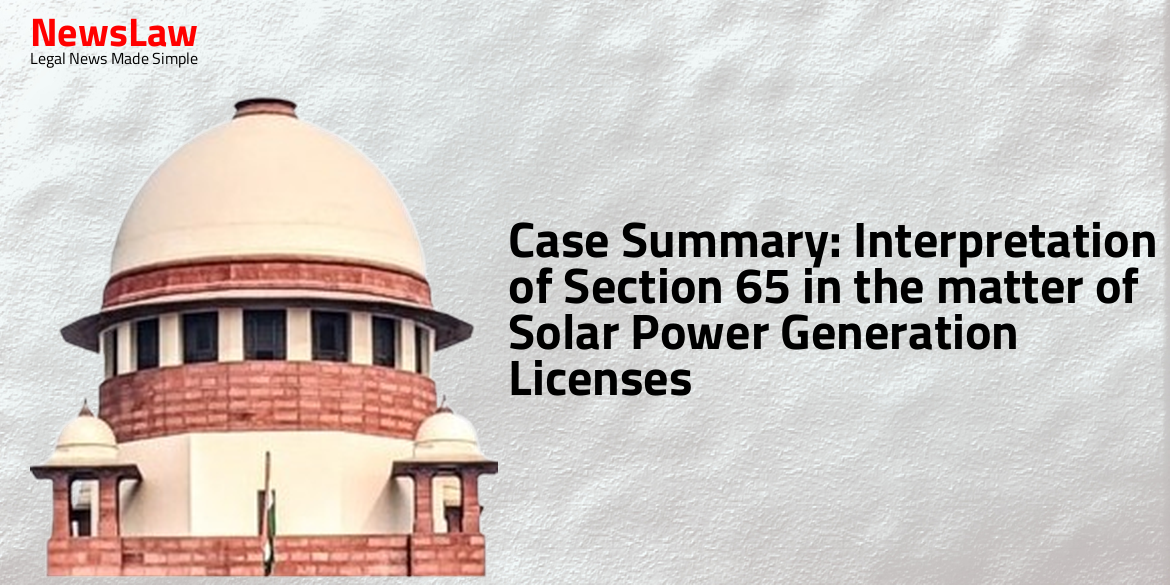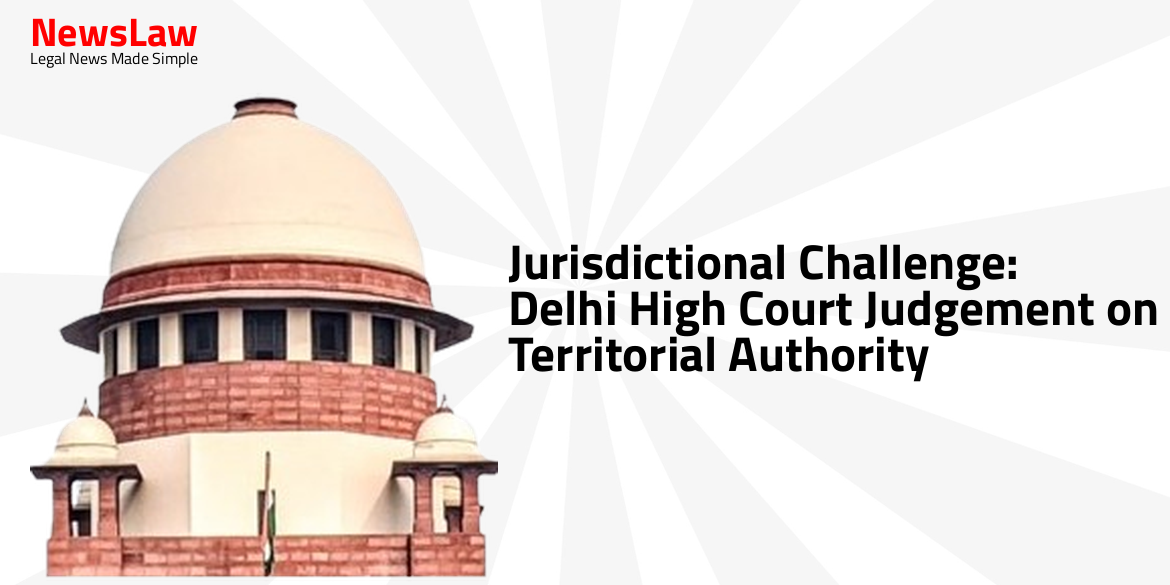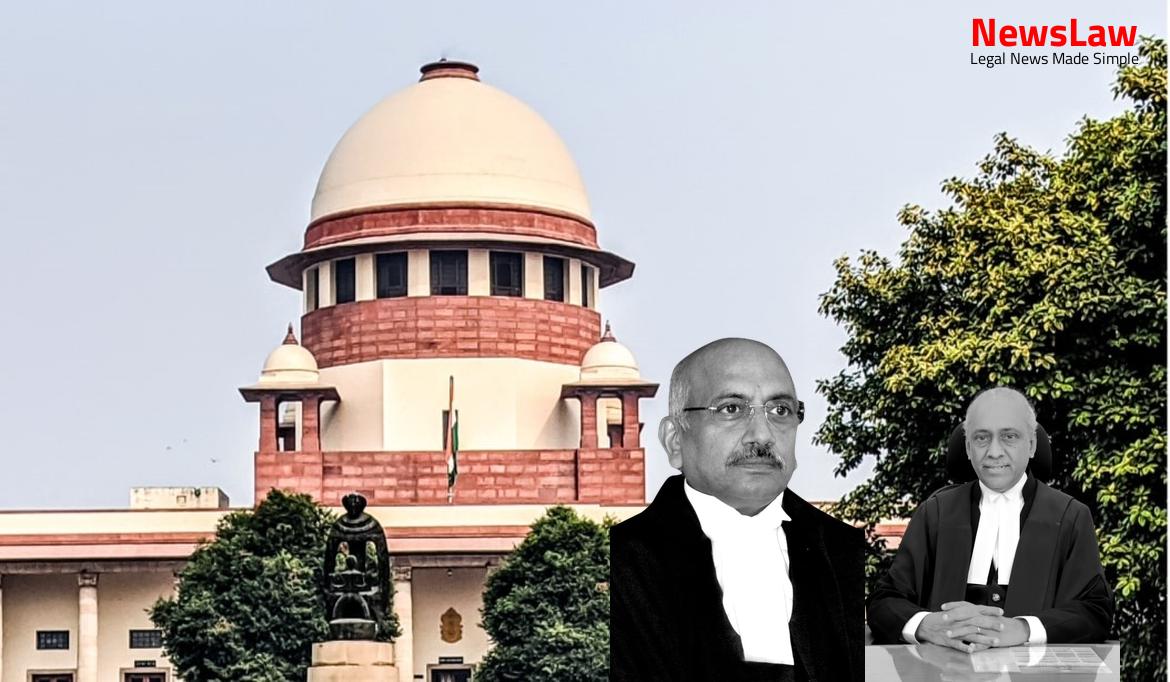In a significant legal development, the Delhi High Court recently deliberated on the interpretation of Section 65 in the context of solar power generation licenses. The case involves challenges raised by a group of petitioners regarding the cancellation of their licenses under the MOOWR regulations. The petitioners contended that the government’s Instruction mandating cancellation of licenses for solar generation units was incorrect, arguing for a broader interpretation of the statutory provisions. Stay tuned to understand the High Court’s perspective on this crucial matter!
Facts
- The Facilitation of Advance License (FAC) scheme was introduced to facilitate the import of raw materials without payment of duty for export purposes.
- The scheme required the petitioner to execute a bond to fulfill specified export obligations.
- The Export Promotion Capital Goods (EPCG) scheme allowed duty-free import of capital goods for pre-determined export obligations.
- The petitioner opted for the EPCG scheme instead of the FAC scheme.
- The Directorate General of Foreign Trade (DGFT) rejected the petitioner’s request to convert the EPCG license to FAC license.
- The petitioner challenged this rejection before the High Court.
- Imposition of BCD in 2022-23 led to a reduction in imports overall.
Issue
- Whether the Circular issued by the respondents can be considered as a revenue legislation for imposing excise duty.
- Determination of whether the suits must pertain to the recovery of possession of immovable property in Greater Bombay.
- Interpreting Section 37-B of the Act to understand its scope and requirements.
- Application of the dominant purpose test or theory of apportionment in interpreting Section 14-A of the Act.
- Clarifying the interpretation of the phrase ‘in relation to’ in the context of earning dividend income on shares.
Arguments
- The petitioners contended that the cancellation of their license was invalid and void as they were not given the opportunity to warehouse the imported goods until clearance or consumption.
- The Union Budget 2023-24 excluded solar power plants and projects from project imports, aligning with the Make in India and Atma Nirbhar Bharat initiatives.
- The petitioners argued that the government’s intent was to incentivize domestic manufacturing of solar cells and modules.
- The petitioners challenged the cancellation of their license under the MOOWR regulations, claiming it to be a judicial act requiring an inquiry process.
- The petitioners asserted that the generation of electricity from solar panels using imported capital goods qualifies as manufacturing, thus meeting the criteria of Section 65.
- The petitioners criticized the Instruction compelling the Customs authorities to cancel all licenses of solar generation units, deeming it contrary to the Act’s provisions.
- The petitioners highlighted the statutory obligation to execute a bond for imported goods warehoused, allowing clearance only upon execution.
- Mr. Ghosh questioned the interpretation of Sections 61 and 65 of the Act and made additional contentions.
- He argued that the period for retaining solar panels in warehouses should be governed by Section 61(1)(a) of the Act.
- Mr. Ghosh emphasized the criteria of ‘nexus’ or connection with warehoused goods under Section 65.
- The counsel argued that solar power generation should be permissible under Section 65 of the Act.
- He highlighted the reservation of 50% capacity for indigenously manufactured solar cells and modules.
- Mr. Ghosh challenged the validity of the impugned Instruction based on incorrect interpretation of laws.
- He asserted that the phrase ‘in relation to such goods’ in Section 65 should be comprehensively understood.
- The counsel contended that the respondents’ interpretation of Section 65 is erroneous and should be rejected.
Analysis
- Licensee must remove goods from warehouse for export upon filing a shipping bill or bill of export and affixing a one-time-lock to the means of transport.
- Licensee must record the goods removed from the warehouse.
- Licensee eligibility criteria for permission to operate under the regulations are outlined.
- Provisions for clearance of goods for home consumption and other purposes under Chapter VII of the Act.
- Regulations regarding the period for which goods may remain warehoused and extension provisions.
- Power of the Board to issue orders, instructions, and directions for achieving uniformity in the classification of goods.
- The court emphasizes the importance of giving effect to clear legislative language as the determinative factor of legislative intent.
- The court should not depart from the literal meaning of a statute unless there is a clear alternative construction available or ambiguity in the wording.
- Rules of interpretation should only be applied when the legislative intention is not clear and the plain words of the statute are ambiguous.
- In cases where statutory provisions are unambiguous, the court should not resort to other rules of interpretation.
- The court should not amend the law in the guise of interpretation or lean towards a particular interpretation based on judicial views.
- The court’s duty is to interpret and apply the law, not to change it based on individual notions of what is just.
- Parliament is presumed to make legislation without mistakes, and judges must apply the law as written.
- The focus should be on what the provision states clearly, with recourse to other interpretative rules only when necessary.
- Recreating or reassembling Section 65 to exclude a particular category of activity based on negative impact on domestic industry is wholly incorrect.
- Court cannot deploy principles of purposive interpretation to correct any perceived anomaly in solar power generation impacting local generators or distorting the ‘level playing field’.
- Policy issues related to the impact of solar power generation on local generators are beyond the scope of the Court’s statutory interpretation.
- Court cannot introduce conditions of ineligibility in the guise of statutory interpretation.
Decision
- The Instruction of the Board dated 09 July 2022 mandating review of existing licences and follow-up action is quashed.
- Detailed orders were passed on 04 August 2023 in Application for Directions C.M. 36603/2023.
- The stay on the operation of the impugned Show Cause Notice (SCN) was confirmed and made absolute on 26 August 2022.
- The present writ petitions are allowed based on the aforementioned reasons.
- No further observations are deemed necessary.
- The amendment application assailing the SCN was moved by the petitioner.
- W.P.(C) 12386/2022 shall stand.
- The parties are to proceed further as per the directions issued on this batch.
Case Title: ACME RAISAR SOLAR ENERGY PRIVATE LIMITED Vs. CENTRAL BOARD OF INDIRECT TAXES AND CUSTOMS & ANR. (2024:DHC:3615-DB)
Case Number: W.P.(C)-10837/2022



